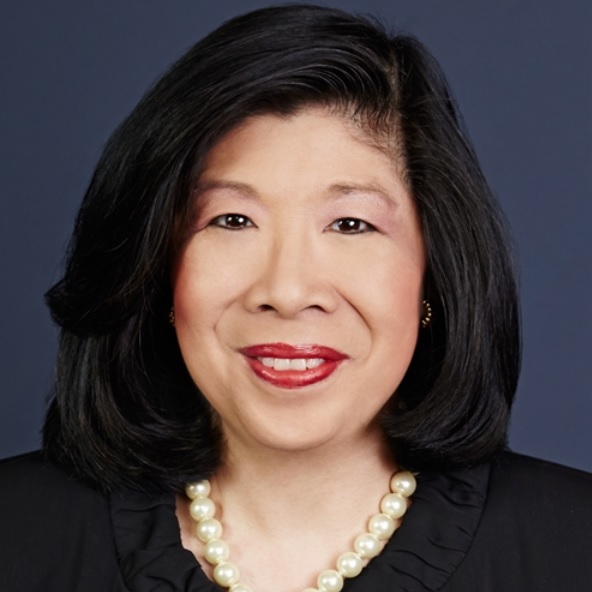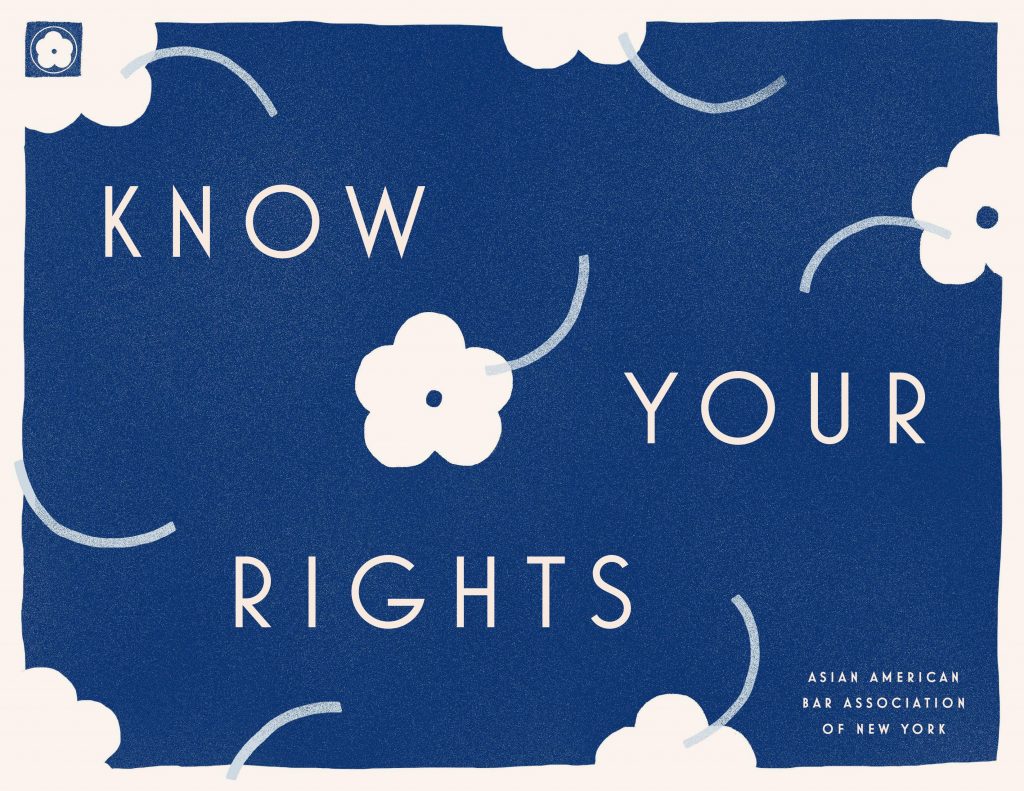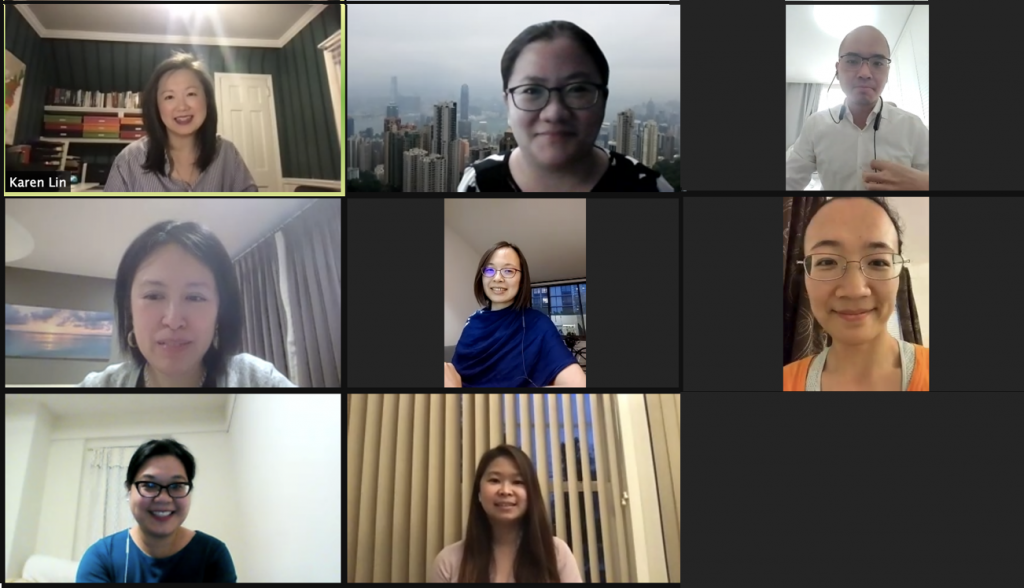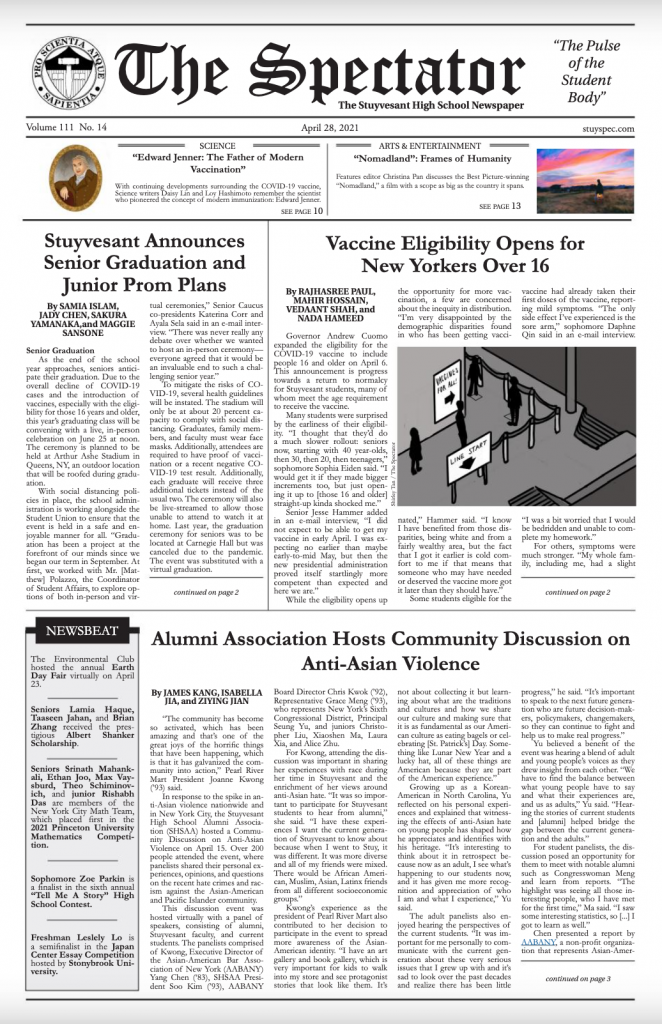WASHINGTON, D.C. – U.S. Rep. Grace Meng (D-Queens) announced today that she secured $30 million in a key spending bill to expand provisions in her COVID-19 Hate Crimes Act, which President Biden signed into law on May 20th to help combat the ongoing hate and violence against Asian Americans and other impacted communities.
Meng attached the funding to the Commerce, Justice, Science Appropriations bill. The measure now heads to the House floor where it is expected to pass later this month. The money would be provided directly to community-based organizations to implement the COVID-19 Hate Crimes Act’s goal of community engagement, empowerment, and education. One of the major provisions in the new hate crimes law directs federal agencies to work with community-based organizations to raise awareness of hate crimes during the COVID-19 crisis.
“Community-based organizations are the heartbeat of our communities,” said Congresswoman Meng. “Since the beginning of the pandemic, they have been on the front lines standing against the rise in bigotry and attacks. They’ve worked tirelessly to help victims and stop this spike in discrimination and intolerance; and they have done all this under-resourced. As my COVID-19 Hate Crimes Act addresses the problem, we must be certain that community groups have the resources they need to carry out parts of the new law. I am so proud of the new $30 million grant program that would advance community-based approaches to addressing hate crimes. This vital funding would reinforce and expand the critical ground work that these community groups have been doing; it would help them scale up and expand out. I look forward to this funding being approved by the full House and passed by the Senate – so that our neighbors can live free from hate and violence.”
Community-based organizations and civil rights groups can use the funds for:
- Implementing and facilitating educational classes and community services for defendants convicted of hate crimes (directly related to the community harmed by the offensive).
- Culturally competent and linguistically appropriate public education campaigns on the collection of data and public reporting of hate crimes.
- Safety ambassadors to escort vulnerable community members in public places.
- In-language support for victims and/or surviving families of hate crimes including mental health support.
- Providing bystander, de-escalation trainings in multiple languages.
- Other community-based strategies deemed appropriate for communities of color and other vulnerable and historically disadvantaged communities.
The Commerce, Justice, Science spending bill funds the U.S. Department of Justice, Department of Commerce, and science-related initiatives. Meng is a senior member of the House Appropriations Subcommittee on Commerce, Justice, Science and Related Agencies which determines the funding levels for the measure. The $30 million is allocated under a new grant program called “Community-Based Approaches to Advancing Justice.”
Other provisions of Meng’s COVID-19 Hate Crimes Act include, among other things, creating a position at the Department of Justice to facilitate expedited review of COVID-19 hate crimes, encouraging more reporting of incidents in multiple languages, and expanding public education campaigns aimed at raising awareness of hate crimes and reaching victims.
Meng reintroduced the COVID-19 Hate Crimes Act in March with Senator Mazie Hirono (D-HI). It was passed in Congress with overwhelming and bipartisan support; 364 to 62 in the House and of 94 to 1 in the Senate.
“The Community-based Approaches to Advancing Justice grant, championed by Congresswoman Grace Meng, recognizes that our communities are in crisis,” said Jo-Ann Yoo, Executive Director of the Asian American Federation. “Victims and their families continue to struggle to overcome the terrible physical, mental, and economic toll of hate violence: our seniors are terrified to step outside their doors, and parents are afraid to send their children to school even after months of isolation at home. While the nation’s attention may have shifted from the wave of violence that continues to batter our communities, we are still being called on every day to do the urgent work needed to protect them from further attacks. The Congresswoman clearly understands. This grant is an ambitious and necessary step to enhance and expand community engagement, empowerment, and education against hate. The Asian American Federation is hugely inspired by Congresswoman Grace Meng’s efforts. We thank her for her commitment to support and protect the millions of hard-working Asian Americans that continue to help our nation confront a global pandemic despite the bias they face.”
“Since the beginning of the pandemic, Rep. Meng’s leadership has been tireless and inspiring,” said Gregg Orton, National Director of the National Council of Asian Pacific Americans (NCAPA). “Her relentless pursuit of justice and greater opportunities for the Asian American community has resulted in meaningful progress in the fight against anti-Asian hate; and we are deeply appreciative of her willingness to work with us towards these solutions. The inclusion of a new grant program at DOJ that will support the work of community-based organizations responding to hate crimes comes at a critical time. So many of our community organizations, who were already under-resourced, have been pushed even further beyond their limits to respond to hate. This provision must be preserved by the Senate.”
“ADL applauds Congresswoman Meng and the Appropriations Committee in their continued efforts to fight against hate,” said Jonathan Greenblatt, CEO of the Anti-Defamation League (ADL). “We welcome the creation of the Community-Based Approaches to Advancing Justice grant program and similar initiatives. Congress and the Administration must continue to prioritize – and fully fund – community-driven, whole-of-society approaches to address all forms of hate.”
“Congresswoman Meng is to be congratulated for her commitment to non-carceral approaches to conflict resolution,” said Laura M. Esquivel, Vice President for Federal Policy and Advocacy at Hispanic Federation. “We urge support for the ‘Community-Based Approaches to Advancing Justice’ grant program which will directly fund trusted community-based groups to build stronger, safer communities through community empowerment and education.”
“It is a long time coming for dollars to assist in the work we struggle to accomplish,” said Ken Cohen, Regional Director of the NAACP New York State Conference Metropolitan Council. “The NAACP embraces the concept and hopes the funding will find its way to the Branches of New York City, New York State and the many other organizations that do this work with little or no funding.”
“The fight for justice must be community-led and organized. By securing a $30 million grant program for community-based organizations, Representative Grace Meng is taking the appropriate steps necessary to ensure that every city in America is safer tomorrow than it was yesterday,” said Alphonso David, President of the Human Rights Campaign. “Vulnerable communities across the country, including trans and non-binary people of color, will be better equipped to prevent and respond to hate crimes because of funding for community-based strategies. The Human Rights Campaign is proud to support this provision in the Commerce, Justice, and Science FY2022 appropriations bill and urges Congress to swiftly enact it into law.”
“SALDEF applauds U.S. Representative Grace Meng’s successful effort in securing $30 million in funding to expand provisions in the COVID 19 Hate Crimes Act, which will support community- based organizations’ engagement, empowerment and education initiatives in regard to hate crimes,” said Kiran Kaur Gill, Executive Director of the Sikh American Legal Defense and Education Fund (SALDEF). “This will directly help communities impacted by hate crimes and provide critical resources to support these efforts. As a community that has been disproportionately targeted by hate crimes, Sikh Americans understand the importance of addressing these issues head on and the consequences if they are gone unchecked. These resources are critical to curbing the discrimination and violence and, by allocating them to community-based organizations, they will go where they are most needed – on the front lines. We sincerely appreciate Representative Meng’s action on this issue. “
“AABANY is immensely appreciative of Congresswoman Meng’s leadership in combating anti-Asian hate,” said Terrence Shen, President of the Asian American Bar Association of New York (AABANY). “Providing these resources to AAPI community groups is critical because they have generally been underfunded, but nonetheless deeply connected to the AAPI community. These organizations have been doing critical work since early in the COVID-19 pandemic. The increased funding will meaningfully amplify their efforts.”
“This grant program demonstrates a commitment for community-based responses to anti-Asian hate and racism, and builds upon the historic COVID-19 Hate Crimes Act passed in May,” said John C. Yang, President and Executive Director of Asian Americans Advancing Justice | AAJC. “We are pleased that Congress will be funding community organizations that have the cultural competency to reach, serve, and support our diverse Asian American communities through mental health services, public education campaigns, training on how to respond to anti-Asian hate and harassment, and more. We thank Rep. Grace Meng for her strong and steadfast advocacy to ensure that Congress follows through on its promises to meet the needs of our communities. We also extend our appreciation to the organizations that have long been working, and have stepped up during the COVID-19 pandemic, to protect and support those who are the most vulnerable.”





